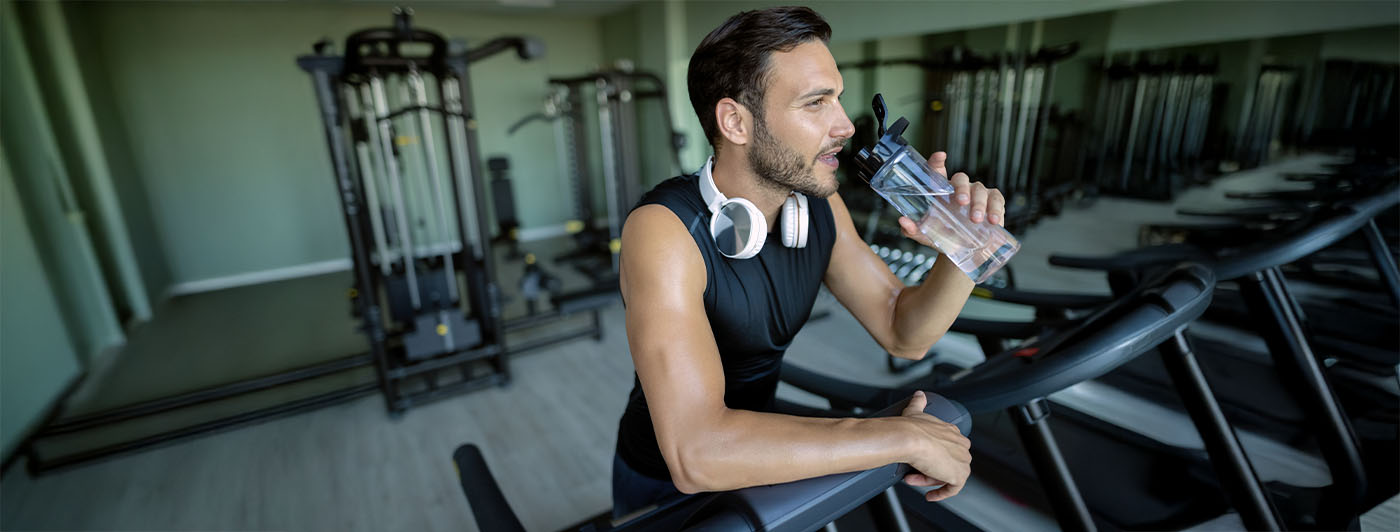Imagine this: You’ve just crushed your final rep, sweat dripping, muscles pumped — you know you gave it your all. But what if something as simple as when you take your creatine could amplify those gains you worked so hard for? It’s a detail so many overlook, yet timing can help you maximize every scoop.
When it comes to supplements that boost performance and muscle gains, creatine remains one of the most researched and trusted choices worldwide. But even seasoned lifters debate one question over and over — what’s the best time to take creatine? Should you down it before you hit the gym to fire up your strength, or wait until after your last set to enhance recovery and muscle growth?
The truth is, both timings have their merits. So, let’s break down what the science says, what real-life athletes have found in practice, and how you can discover the best time to take creatine for your unique training style and goals. And if you’re pairing it with clean plant protein, you might just unlock even better results.
How Creatine Works in the Body
Creatine is a natural substance found in small amounts in certain foods and synthesized by your body. Once consumed, it’s stored as phosphocreatine in your muscles, acting as a quick energy reservoir during short, explosive movements. Think of that last big lift or final sprint — creatine helps regenerate ATP, the primary energy molecule in your cells.

When considering the best time to take creatine, it’s important to understand how your body absorbs and utilizes it. Most research shows that taking creatine consistently is key for maximum benefit — but when you take it can give you that extra edge.
Should You Take Creatine Before Your Workout?
One school of thought is that the best time to take creatine is before training. By taking it 30 to 60 minutes prior to exercise, you ensure your muscles have immediate access to higher creatine stores during your workout. This can translate to improved power output, better endurance for short bursts, and even increased training volume.
Some athletes report feeling more “pumped” and explosive when they take creatine as part of their pre-workout ritual, often alongside carbohydrates like maltodextrin or fast-digesting fruit to boost insulin and creatine transport into muscles.
Is Post-Workout Creatine More Effective?
On the other hand, numerous studies lean towards post-workout timing as the best time to take creatine for most people. After training, your muscles are depleted, blood flow is high, and cells are more receptive to nutrients. Pairing creatine with a post-workout shake or meal — ideally containing some carbohydrates and protein — may help maximize muscle uptake.
A widely cited study published in the Journal of the International Society of Sports Nutrition found that subjects who took creatine immediately after training saw slightly greater gains in muscle mass and strength than those who took it before. The difference wasn’t dramatic, but enough to show that timing can play a role.
It’s About Consistency, Too
Before you overthink the best time to take creatine, remember this: daily consistency is what truly matters. Unlike stimulants like caffeine, creatine works by gradually saturating your muscle stores. So, missing days or taking it inconsistently can reduce its effectiveness.
If you can’t stick to a strict “before” or “after” routine, pick a time that’s easiest for you to remember — maybe mixed into your plant based protein powder shake or breakfast smoothie. What counts is hitting your daily dose.
How Much Creatine Should You Take?
A typical maintenance dose is 3–5 grams per day for most adults, once you’ve gone through a loading phase (if you choose to do one). Loading usually involves taking 20 grams per day split into four servings for 5–7 days, which saturates your muscles faster. However, you can skip loading and simply take a maintenance dose daily; the results will come more gradually but just as effectively.
Using a protein intake calculator can help you balance your protein needs along with your creatine intake, ensuring you’re fueling your muscles properly for growth and recovery.
Combine Creatine with Carbohydrates for Best Results
Many experts recommend pairing creatine with a source of carbohydrates, especially post-workout, to spike insulin levels and shuttle more creatine into your muscle cells. This is where maltodextrin, a high-glycemic carb, comes in handy for quick absorption.
Adding some fiber rich foods throughout your day also supports digestion and helps your body utilize nutrients more efficiently. Think oats, berries, lentils, and vegetables — small adjustments like this can boost your overall results.
Women and Creatine: An Underrated Pairing
There’s a misconception that creatine is just for male bodybuilders. In reality, the best time to take creatine applies to women too! Research shows that women can gain similar benefits, including improved strength, better recovery, and increased lean muscle mass — all without the fear of “bulking up.”
Combining creatine with a protein powder for women that suits your dietary needs can help maximize post-workout recovery. And don’t forget to pay attention to other nutrients too — for example, adding biotin rich foods veg like almonds and sweet potatoes supports healthy hair, skin, and nails, which is always a plus.
Supporting Your Overall Nutrition
Your creatine won’t work in isolation. For the best results, make sure you’re getting enough protein from whole foods or supplements like the best plant based protein, along with other important nutrients.
Chromium, for instance, is a trace mineral that plays a role in blood sugar control and energy metabolism. Including chromium foods such as broccoli or whole grains can support stable energy levels during workouts.
If you’re experimenting with dietary patterns like an Indian keto diet plan, keep in mind that your carb intake may be low, which can slightly reduce creatine’s water retention effects in muscles. In such cases, stay consistent and ensure you’re still meeting your daily maintenance dose.
Plant-Based Athletes and Creatine
Many vegan or plant-based athletes wonder if creatine works for them. Absolutely! In fact, because plant-based diets are naturally low in dietary creatine (found mostly in red meat and fish), supplementing becomes even more important.
Pair your creatine with a clean plant protein or plant based protein powder to cover all your muscle recovery needs. A balanced diet rich in whole plant foods will also ensure you get fiber, healthy fats, and micronutrients to fuel performance.
Real-Life Tips to Find the Best Time to Take Creatine for You
So, what’s the takeaway? If you’re looking for the best time to take creatine, here’s a simple, practical guide:
-
Before Workout: If you train early and like to fuel up, take creatine with your pre-workout meal or shake. Add fast carbs like fruit or maltodextrin for quick energy.
-
After Workout: Many find this more convenient — your muscles are primed, blood flow is increased, and combining creatine with protein and carbs supports recovery.
-
Rest Days: Don’t skip! Keep taking creatine daily to maintain muscle saturation, even on off days.
-
Stay Hydrated: Creatine draws water into your muscles, so increase your fluid intake to avoid cramping or dehydration.
-
Eat Balanced: Support your training with nutrient-rich foods like fiber rich foods, chromium foods, and biotin rich foods veg for holistic health.
Final Thoughts: Best Time to Take Creatine — Before or After Workout?
At the end of the day, the best answer is simple: the best time to take creatine is the time you’ll actually stick to. Science gives a slight edge to post-workout for better muscle recovery and growth, but consistency always wins over perfect timing.
So don’t overthink it — just make creatine a part of your daily routine. Stack it smartly with your favorite protein source — maybe a scoop of the best plant based protein — and watch how this small habit powers up your performance, rep after rep.
Ready to get even better results? Use a protein intake calculator to dial in your daily macros, fuel your body with fiber rich foods, and experiment with meal plans that match your goals — whether that’s a traditional approach or an Indian keto diet plan.
Take control of your fitness journey today. Stay consistent, fuel up wisely, and you’ll unlock the real power of creatine. Now that you know the best time to take creatine, it’s your turn to lift stronger, recover faster, and push your limits further than ever. Let’s get after it!
Frequently Asked Questions
1. When should I take creatine for best results?
For best results, take creatine daily, ideally around your workout time. Many experts recommend consuming creatine shortly after exercise, when your muscles can absorb it more effectively. On rest days, take it at the same time each day to keep muscle creatine levels steady.
2. Is it better to take creatine before or after workout?
Most research suggests it is better to take creatine after your workout. Post-workout creatine may help with faster muscle recovery, better strength gains, and improved muscle growth by restoring depleted energy stores.
3. Do and don’ts when taking creatine
Do:
-
Take creatine daily and consistently.
-
Drink plenty of water to stay hydrated.
-
Choose high-quality creatine monohydrate for proven results.
Don’t:
-
Skip doses if you want to maintain benefits.
-
Take more than the recommended dosage.
-
Depend only on creatine without a proper workout routine and balanced diet.
4. What not to mix with creatine?
Avoid mixing creatine with large amounts of caffeine or alcohol. Too much caffeine may reduce creatine’s benefits for some people, and alcohol can interfere with hydration and recovery. Mix creatine with water, juice, or a carb-rich drink for better absorption.
5. Can I take creatine on an empty stomach?
You can take creatine on an empty stomach, but some people experience mild stomach discomfort. If that happens, try taking it with food or after your workout meal to support better digestion and nutrient uptake.












